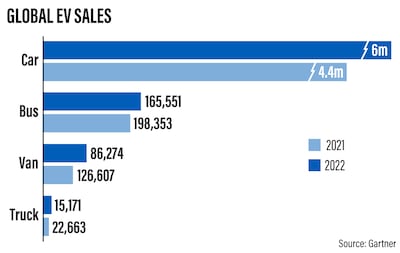Nissan Motor, Japan's second-largest car maker will stop producing new internal combustion engines in all major markets, except the US, as the company moves to focus more on electric vehicles, the Nikkei daily reported.
The Yokohama-based carmaker will continue limited production of its petrol engines for the US market, mainly for pickup trucks, the Japanese newspaper reported, without citing any sources.
No timeframe was provided as to when Nissan would make the transition.
The company, which pioneered EV technology with the Nissan Leaf, has already halted manufacturing petrol engines for sale in Europe.

In November, it said it would spend about $18 billion over five years to boost its vehicle electrification projects. The company pans to launch 23 new EVs — including petrol-electric hybrids — in the next eight years. Almost half of Nissan's vehicle mix will be electrified by 2030, the company said.
The company plans to release its new EV, Ariya, in North America later this year and has already started accepting bookings.

Nissan will make improvements to existing engine designs rather than develop new ones, Nikkei said. The company has no plans to shut its existing plants or cut any jobs, according to the report.
Shipments of EVs are expected to rise by almost 35 per cent on an annual basis this year as governments introduce regulations and incentives to help the industry's growth, Connecticut-based research agency and consultancy Gartner said.
About 6.4 million EV units are expected to be sold this year, 1.6 million more than 2021, the report said.
Restrictive emissions and fuel efficiency regulations have forced global car manufacturers to focus on vehicles that are more environmentally friendly.
Last month, German-owned luxury car brand Bentley announced that its first EV would be ready by 2025, as it unveiled major investments towards becoming a fully carbon-zero company.
Parent group Volkswagen — whose 12 brands include Audi, Porsche and Skoda — is pumping $39bn into the shift to EVs and aims to become the world's largest electric carmaker by 2025.
In January last year, General Motors, the largest US carmaker, unveiled plans to eliminate petrol and diesel light-duty cars, including SUVs, by 2035.














